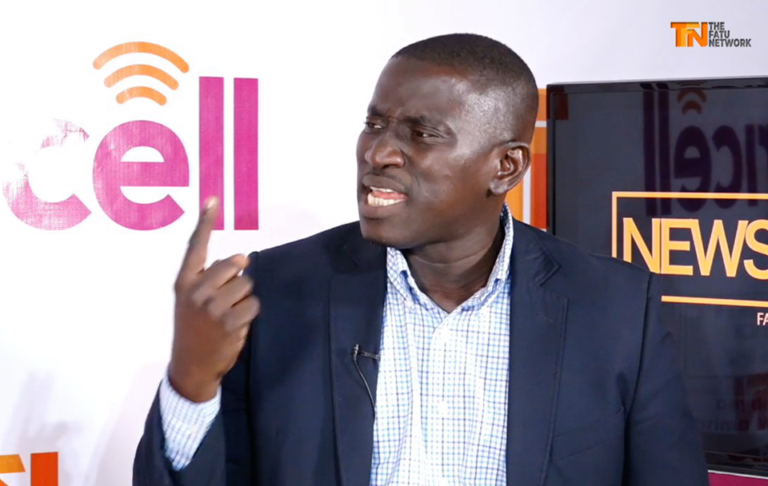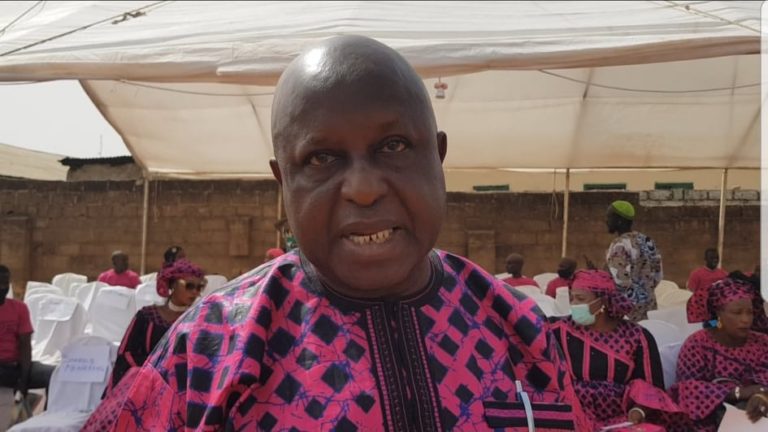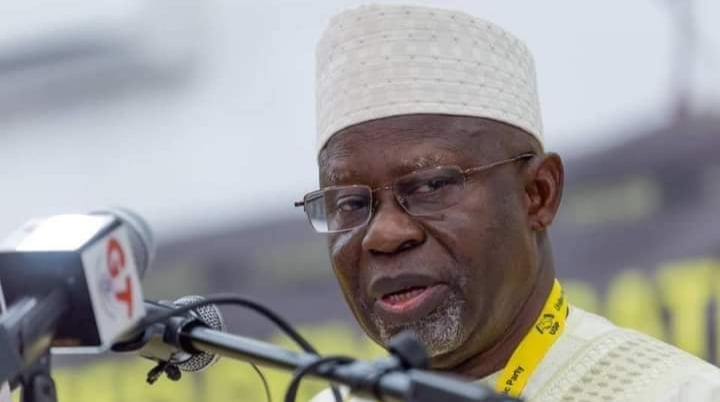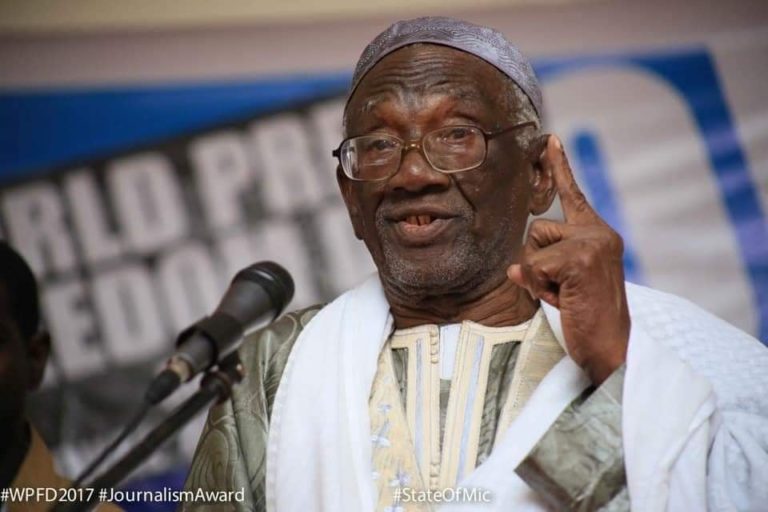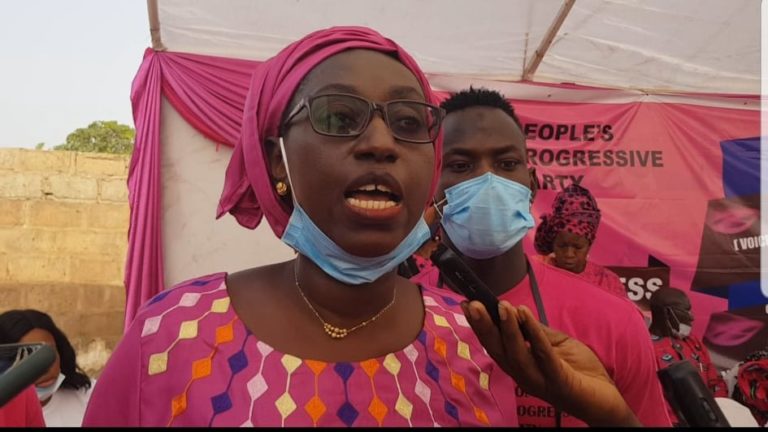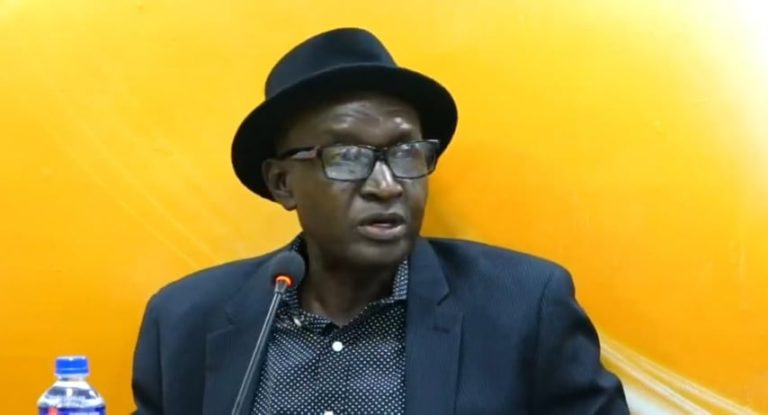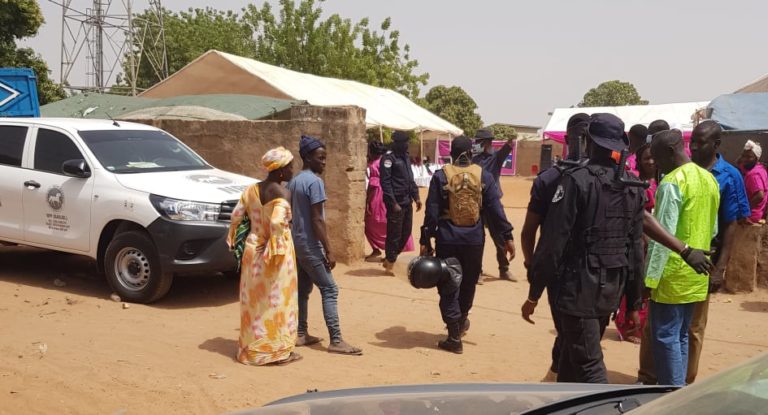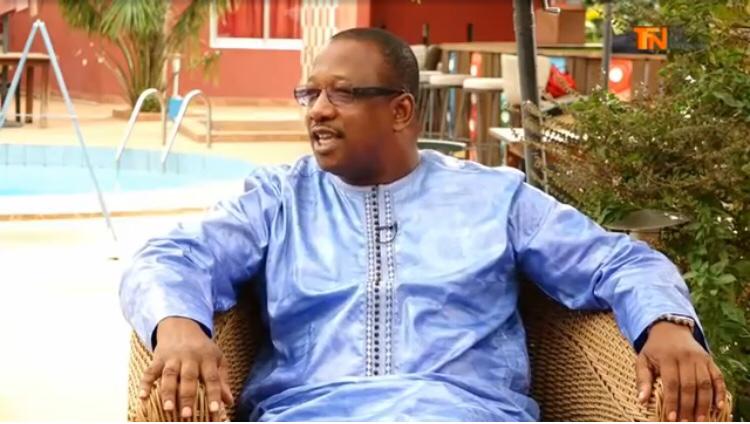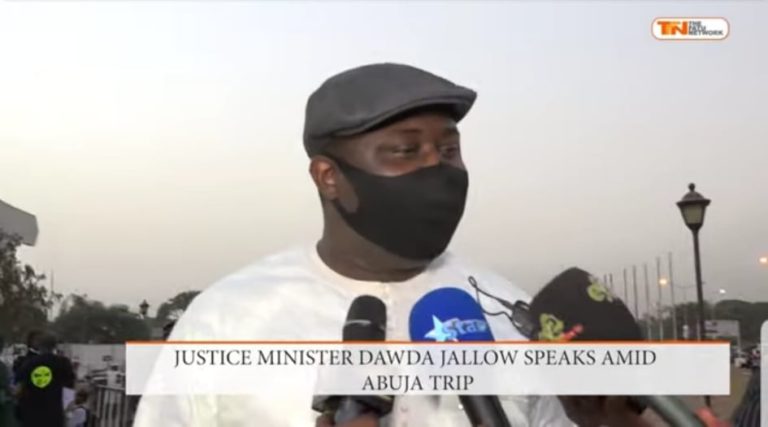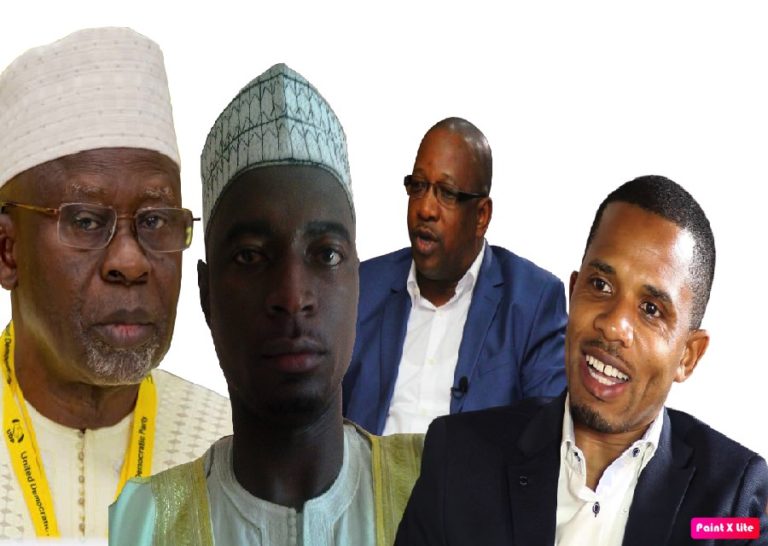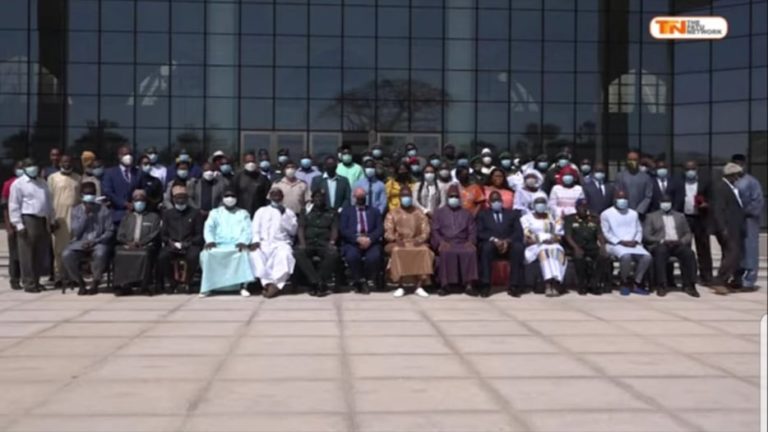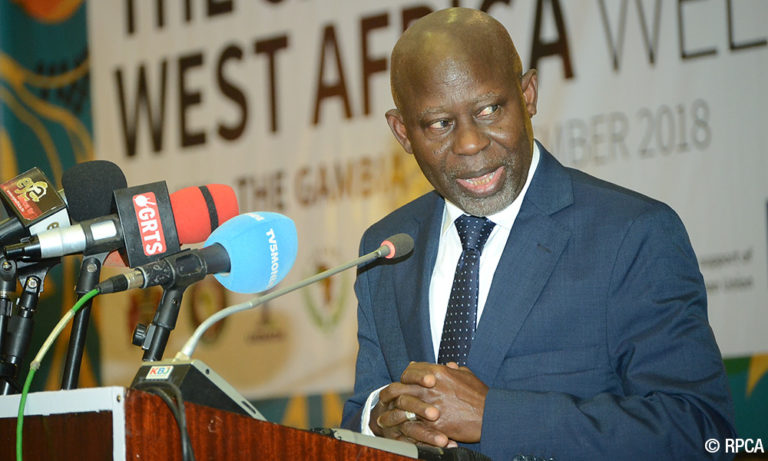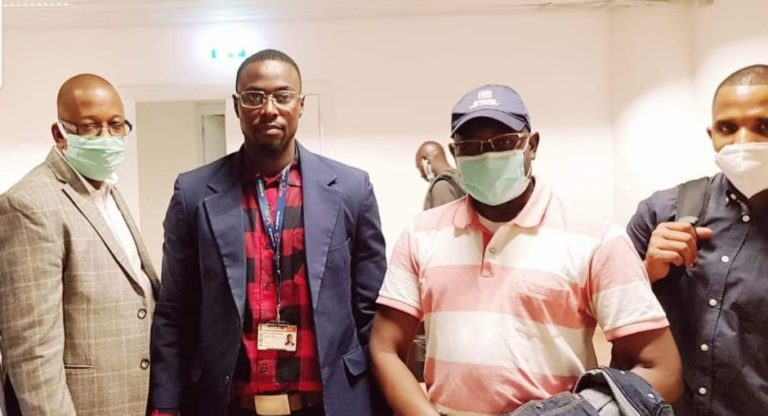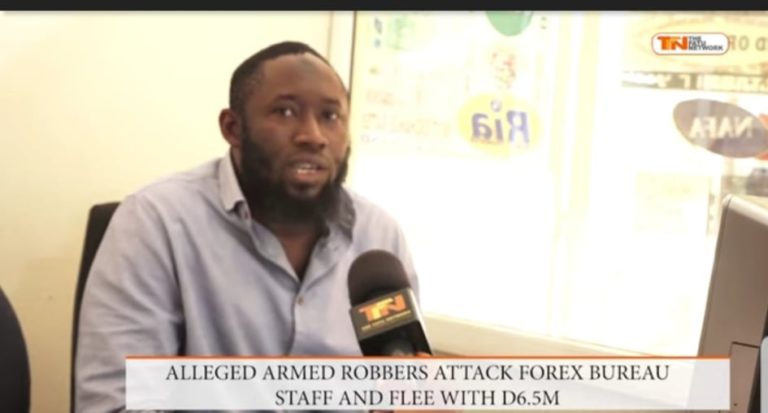Alhaji B.M Tarawale (1930-2021: Gambian Teacher, Nationalist, Crusading Journalist and Lexicographer)
By: Hassoum Ceesay
When my good friend Alhaji B. M.Tarawalle aka Ba Tarawale died on Monday March 1, The Gambia lost its last surviving journalist of the immediate pre-and post independence era, who was also the founder member of at least five political parties between 1958 and 1975, our pioneer lexicographer and one of the first non Aku qualified teachers.
Alhaji Ba was a dedicated teacher who joined the colonial teaching service in the late 1940s, having graduated from the Georgetown Teachers College just before it was moved to Yundum in 1951. He taught in many schools in the then Protectorate, but most notably, at the main Ballangahr village, ‘the Chief’s Town’, as he would tell me when I reminded him that there were a dozen villages in one cluster that carry the name Ballanghar! There, he basked in the glory that another Gambian patriot E.F Small, OBE, had left in those villages as far back as 1918. Mr. Small had refused to suffer colonial oppression and confronted a British Official which made him lose his job as a Methodist missionary, and thenembarked on an illustrious nationalist career that culminated in Gambian Independence on 18 February 1965.
Alhaji Ba stayed at BallangharSchool for so long that he formed the first corps of educated rural Wollofs. He also learned the demotic Saloum Wollof such that I always wondered if he was born Wollof. ‘No, I was born Bambara, but I love Saloum Saloum and I am happy to speak and know their language so well’, he once confided in me here in Banjul.
He returned to Banjul in the late 1950s and together with Alex Jorbateh and Edrissa Samba created a political pressure group called the Committee of Gentlemen. It helped to incubate the 1959 anti-colonial protests in Bathurst during the visit byAlan Lennox-Boyd, the British Secretary of State for Colonies. The protesters wanted, and got, a new constitution of universal adult suffrage. This protest was the first of its kind in UK’s ‘most loyal colony’ The Gambia, since the 1929 dock workers strike. This was his nascent work as a Gambian nationalist. Soon, he veered into the inchoate PPP of Sanjally Bojang, and helped to draft the party’s first Manifesto. When D.K Jawara, our future leader, was made head of the PPP in late 1959, he chose Alhaji Ba, already known for his impeccable writing skills and polemics, to be his press secretary.
As Jawara’s press aide, Alhaji Ba tormented P.S. Njie’s U.P in the newspaper columns in Bathurst and abroad, especially in the UK mainstream press. Now Jawara was Leader of Opposition and P.S was Chief Minister. Alhaji Ba used his penmanship to publish harrowing descriptions of P.S Njie’s short reign to the London press, especially in the highly regarded LondonTimes.
In 1962, he created The New Gambiaas the PPP’s newspaper. Then in The Gambia, each party had a newspaper to help to further your agenda. The U.P had the United Party Newsletter edited by I.A.S Burang-John; the Muslim Congress Party had African Unity edited by the great writer and journalist Pierre Sock(1940-1990). I once asked Alhaji Ba if this was good for Gambian journalism? ‘Yes, every party should have a mouthpiece, a newspaper to generate and hold the party record for posterity, and also forward the party message. You see, Hassoum, there is certain type of political news it should be the purview of only the party press. You cannot expect private press to give saturated political coverage to any party. It exposes the private press to political ploys and machinations’.
Indeed, in those days we had in Bathurst the party press, the private press like Dixon Colley’s Nation; The Gambia Echo; The Gambia Outlook of M.B Jones; Mbakeh Njie’s Progressive newspaper; R.S Allen’s The Gambia Onward; the subterranean or seditious press like Tonya and Fansoto; Government press like The Gambia News Bulletin and Radio Gambia and of course foreign magazines circulated well. This small country had more than 12 independent publications coming out regularly.
In 1966, Alhaji Ba fell out with Jawara. He ceased been his aide, and then turned the popular New Gambia as a virulent anti PPP paper. But the paper was very progressive, especially in its grande reportage of women issues, and theAmilcarCabral liberation war in Guinea Bissau. In the summer of 1967, he went again into politics forming the National Convention Party(not to be confused with S.M Dibba’s) with another angry journalistMbakeh Njie. The party was stillborn; Mbakeh was bought over into the PPP and Jawara made him the PPP paid hacker, now using his once independent minded Progressive newspaper into a veritable PPP mouthpiece. In late 1967, Alhaji Ba created another party called The Gambia Peoples’ Party(GPP) (also not to be confused with Assan Musa Camara’s GPP of 1986). This party was also soon destroyed by PPP machinations. Doggedly, Alhaji Ba helped create the Peoples Progressive Alliance(PPA) in the summer of 1968 together with four former and highly disgruntled PPP ministers like Paul Baldeh, the brilliant Trinity College, Dublin, graduate; S.S Sisay, the quondam Finance Minister and KCA Kah, a former Minister of Health and Yusupha Samba, also a former Minister. Sadly, this party was also doomed: within months, Paul died, aged only 32; Kah and Samba were doing time in prison? for various offences, and S.S Sisay, through respected Mandinka elders, was apologizing to Jawara seeking re-entry into the PPP! Alhaji Ba was the last to leave the crumbling PPA.
‘Why did you spend 30 months through three parties trying to remove Jawara’, I once asked him at his home. ‘Jawara betrayed me. I was fighting back. He knew full well what I was capable of doing to remove him from power’.
Alhaji Ba reverted to the newspaper to topple Jawara. He revived The New Gambiaand let loose a barrage of damning expose about unpaid labour at one of Jawara’s farms. Alhaji Ba called it slave labour. He is intrepid enough not to write ‘alleged slave labour’. This irked the all-powerful and highly feared Jawara’s Justice Minister, Hon. M.L Saho.
Hon. Saho, who exercised more power than even Jawara himself, called in the police on Alhaji Ba. Charged with defamation and libel at first, Saho added spreading of false information to the charges, and before long he added sedition. Now, not even Amnesty International, then barely ten years old, could prevent the eventual jailing of Alhaji Ba at Mile Two. Jawara, Alhaji Ba would tell me, was not happy that the Justice Minister had gone the whole hog of sending him to Mile Two. But Saho was too powerful.
By 1972, he was out and then went into exile in Guinea Bissau where he witnessed the PAIGC liberation heroes enter Bissau triumphantly to reclaim their land from Portuguese rule. He told me how the PAIGC asked all those who collaborated with the Portuguese, especially its feared secret police, the PIDES, to line up in the centre of Bissau to confess, and then ask for forgiveness or risk going to jail.
In 1981, Jawara called him back home. ‘Sir Dawda called me to State House one day after the Kukoicoup. He asked me to work with him again, that I should forget the past. I replied that I am too elegant to bear grudges. I told him he is now my friend. He asked me to start a new PPP party paper called The Gambia Times. I did so working with J. Saidy and S.A Bakarr’, he told me.
At this time, he also helped to create the Non-Formal Education unit of the Ministry of Education. Here Alhaji Ba worked to formalize the alphabets of Gambian languages, and wrote a 20,000 entries dictionary of Mandinka-English, the first of its kind in scope. Until he died this week he was busy reading the proofs and galleys of an enlarged edition, which I hope will be published posthumously.
Alhaji Ba remained an active writer to his death. He loved the pen and understood what it could do and undo; he also knew how much the pen has helped to free our country from colonial domination into a prosperous Republic. His ilks in journalism are now all gone. They were engaged and engrossed newspaper men who confronted the colonial and immediate post colonial state with hefty determination on the side of poor and weak and downtrodden. Alhaji Ba and his kind did not hide behind journalese, political correctness or staid clichés like ‘alleged’; they were passionate to say it as it should be said, and then await to be taken to court. This is why their names will be remembered by historians always as patriots of the nation who stood by the people in telling their story. I will sorely miss my friend and critic, Alhaji Ba. To his friend and family, especially Steve, and to the GPU, I offer my sincere condolences and pray that his soul rest in peace.
(Alhaji BabacarMusa Tarawale: Gambian Teacher, Nationalist, Crusading Journalist and Lexicographer), born in Bathurst 24 December 1930, died Serekunda, March 1, 2021).
Hassoum Ceesay
Salieu Taal’s tribute to Baa Trawally
Inna Lillahi Wa inna Lillahi Raji’oon
“every old man that dies, it’s a library that burns” Amadou Hampate Bah
Another tree has fallen. I did not know Uncle Baa Trawally very well but heard his name mentioned by my late father ( Ebou Momar Taal of blesseth memory ) on countless occasions with fondness and admiration. Sometime in the summer of 2019, I was opportune and privileged to meet Uncle Baa Trawally for the first time and regrettably the last time. I received a phone call from Uncle Baa Trawally expressing his condolences and inviting me to his home to discuss matters relating to my late father. He emphasized that I do my uttermost to honor his invitation. I was really surprised and curious to say the least; I had no clue or expectations of what to expect but already endeared to him from his warmth and courteous disposition on the phone. He meticulously and patiently directed me to his house in Latrikunda over the phone as I was having difficulty finding my way (I am horrible with directions) . Upon arrival he left instructions that I go straight to his bedroom after the exchange of pleasantries with one of his relatives who received me. He asked me to sit close to him and held my hand whilst expressing his condolences following my father’s passing. He was very warm and I was teary eyed as I felt something special and profound inside me.
What followed was one of the most profound and impactful discourse/chat I have ever had in my life . The discourse was centered around his life experiences, politics and his relationship with my father which started at Muhamedan Primary School in the late forties. Actually, it was a lecture, I was captivated and in awe not only by the substance of his narration but the beauty of his language, his pedigree and comportment. I could discern his radical streak and enlightened mind.
Uncle Baa took me through a three hour marathon session despite his age and ailing condition. I knew my father had great respect and admiration for Baa who he regarded as an intellectual heavy weight but I never realized they had a very special connection. Through Uncle Baa, I learnt that they were classmates at Mohammedan school and were the first sons of Muslims to sit the standard 11 plus exam in The Gambia at time access to education was restricted to the privileged few. He narrated that my late dad joined their 11 plus class as the youngest pupil and as the prefect of the class, he took up the responsibility of looking after him. He was my dad’s first friend at Mohammedan school and took him under his arm. He gave me the historical genesis and rationale of the grade 11 plus exam which was introduced by Labour Prime Minister Clement Attlee to democratize access to education to lesser privileged members of society both in the UK and in the colonies. He reminded me of my dad’s humble background and the importance of having a good education. He proudly celebrated his grade 11 plus classmates and how they proceeded to further their education and subsequently serve their country in public service with distinction.
Baa took me through a journey that was very emotional and illuminating. From his relationship with my Dad, he went on explain the role he played in helping my late Uncle Dodou Taal defeat the late Ebrahim Garba Jahumpa in 1977. Uncle Baa despite his age was very lucid, eloquent and coherent. He spoke beautifully with diction and decorum. The three hours I spent with Baa was a master class and left an indelible mark in me. I am eternally grateful to this intellectual giant who was so generous with his knowledge and wisdom. I hope a compendium of his writings will be preserved and published in due course.
Uncle Baa was very fond of my family, particularly my dad and published an anthology of tributes in local papers in his memory. As a family, we are eternally grateful. We extend our profound condolence to Uncle Baa’s family through Jamil Trawally.
Gambia has lost an icon and a library. Baa Trawally is an icon and needs to be celebrated.
“A life that touches others goes on forever “ anonymous
May his blesseth soul Rest In Peace.
Salieu Taal
In Memory of Alhaji Baa Trawally: Veteran Teacher, Politician and Journalist
A Giant tree has fallen and with it we have lost an entire library, a scholar, public-intellectual, lexicographer, journalist, activist- Alhaji Baa Trawally wore many hats. And, today, Ballangharr (and Saloum) mourns her most illustrious “adopted son,” head-teacher, father, uncle and historian. He knew our parents and family histories and recounted them with relish. I knew him as a boy- smartly dressed in brown khaki-shorts, boots, and knee-high socks, donning a caskett; he had a larger than life persona, and towered over all.
Gambia has lost even more- the irrepressible and dynamic political actor and commentator, who “spoke truth to power.” Blessed with a long and productive life he remained intellectually versatile, armed with a razor-sharp memory. A consummate storyteller, he weaved several strands in a narrative, seemingly lost in detail just to pick-up from where he branched off. I will cherish the afternoons Honorable Kebba Touray, and I spent with him, as well as the interview Baaba Sillah and I had with him several months ago.
Alhaji Baa Tarawally will be remembered for having helped forge the Gambia’s political, and print-media histories and more. And, his legacy lies in his commitment to struggle(s) to improve lives of the poor, the marginalized, and those who suffered unfairly from government repression. He remained a critic, and perhaps an outsider to the corridors of power to the very end.
His finest legacy may yet lie, however, as the founding-teacher/head-teacher of Ballangharr School in the 1950s. He loved Ballangharr and her people and would speak effusively about his formative years there in preparation to take on Gambia and the world. He also bequetes as his scholarly legacy to this and generations to follow a nuanced and very rich, Mandina-English Dictionary. Rest in Peace Uncle Baa.
—————————–
Abdoulaye Saine
Breaking News: Touma Njai declares herself PPP leader
By Matty Senghore
Fatoumatta Njai on Monday declared herself secretary general and leader of People’s Progressive Party, less than 48 hours of the party’s disaster congress where allegations of fraud saw the politician refuse to take part in an election.
“To this effect, we the undersigned reject the constituted executive and demand for fresh elections to be held. Meanwhile, we’re here to tell you that we have established an alternative executive pending proper free and fair elections. And to that effect, I declare myself the party leader and the secretary general of the PPP,” Njai told reporters Monday afternoon.
Njai refused to take part in an election at PPP’s congress on Saturday after she claimed fraud had discredited the process. The election went ahead all the same with delegates that stayed voting for Kebba Jallow.
In a news conference on Monday, Njai maintained that the process was fraudulent and she was rejecting it.
“To this effect, we the undersigned reject the constituted executive and demand for fresh elections to be held. Meanwhile, we’re here to tell you that we have established an alternative executive pending proper free and fair elections. And to that effect, I declare myself the party leader and the secretary general of the PPP,” she said.
According to Njai, lack of trust is hindering the growth of People’s Progressive Party.
“I therefore strongly believe that a responsible leader should not wait to be asked for such. As a political party and a government in waiting one must be seen to be transparent and ready to be held accountable, demonstrating responsible leadership whilst at the same time building trust. Absence of trust, as we all know, does enable growth and I am convinced that this is what holds this party back,” she said.
“The lack of trust has been manifested at the just concluded congress and has demonstrated that the love our people have for this party has been lost in transition. This is epitomized by lack of genuineness and sincerity in leadership. Leaders should inspire and not be timid to talk to delegates,” she also argued.
Are the NIA, GAF and GPF chiefs culpable in the murdered foreign migrants in 2005?
Until after I heard the testimony of witness Ousman Jallow of the State Security Agency (S.I.S) yesterday, February 24, 2021 at the TRRC, I was with the impression that the regrettable fate of the international migrants in the Gambia was due to pure intelligence failure. I have in fact likened the incident to the intelligence failure of the world that led to the invasion of Iraq in 2003 that before the truth was established had close to a million people killed and an untold number permanently crippled, not forgetting its unsolvable refugee consequence . And, yes, I have long ago realized that governments make such mistakes and often apologize for them but only after exhausting all efforts to justify or conceal their wrongdoings.
Plus given the fact that certain international-organization commissions had investigated the incident and concluded that the migrants were by all indications killed by rouge Gambian security officials. It will help to read the exact details in that report which I have frankly never seen or read. However, if the 2005 migrant issue was a one-time incident that ended the regrettable manner it did, I would have stuck to my initial conclusion of making it just another intelligence failure.
But when Mr. Ousman Jallow yesterday said that they had three weeks earlier arrested a similar batch of “illegal migrants”-32/35 individuals-sent from Senegal by a human trafficking ring run by “Samba Touba” (a Senegalese from Touba whose identification was kept secret) and one Mr. Tunkara ( a Gambian) but were all eventually deported, my whole intelligence-failure concept of the incident changed.
I was expecting Essa Faal to grill Mr. Jallow about the arrested and deported “illegal migrants” including whether the deportation process was officially conducted or not. Because if they had, the immigration must have been involved and the records still traceable.
Samba Touba whose case was not also adequately discussed at the TRRC was according to Mr. Jallow arrested and later released on bail. Jallow never told us whether Samba Touba was charged of any specific crime and whether he was at all tried.Essa didn’t seem interested either.
However, he told us that in that incident, Mr. Tunkara, the Gambian smuggler was on the run and he came to realize that he was again involved in the case of the 50 migrants he collected from Barra Police Station because their Nigerian group leader had handed him over the phone number of their contact in the Gambia who had happened to be the same man the NIA was hunting for in the past three weeks.
I have in an earlier publication asked whether the state/government/ Jammeh was fully briefed about the first incident linking the smuggled migrants to Samba Touba and Mr. Tunkara which had raised no national or international outcry from any abnormality. I still think an answer to that question will explain a lot, if not everything about what exactly went wrong. For if the state was aware of the first incident with all the operatives involved brought to their attention and was perfectly okay with it, why didn’t Jallow, his bosses at the NIA and of course the immigration officials who process the 32/35 come together and speak with one voice to the government about the case of the 50 migrants being very similar to the one previously linked to Samba Touba and Mr. Tunkara?
The migrants were assembled at the Marine Unit upon their arrival from Barra that night escorted by Mr. Jallow who identified the presence of IGP Ousman Sonko and CDS Assan Sarr but never bothered to explain to the service chiefs about what he had gathered so far from the group’s Nigerian leaders confirming the involvement of the human trafficking gang of Mr. Tunkara and perhaps Samba Touba. Had the 32/35 deported migrants been processed properly, it wouldn’t have been a problem to remind everybody about the incident barely three weeks earlier. But Jallow said nothing about the incident even when he saw “Bombardier” and his ‘killer team’ eager to start their nasty operation.
From what was later explained, the NIA DG Daba Marena (RIP), CDS Assan Sarr, Col. Ndure Cham (RIP) and IGP Ousman Sonko actually convinced Jammeh that the migrants were foreign mercenaries from Senegal sent to overthrow his government. By that time it was easy to convince Jammeh of Senegal constantly committed to overthrowing his government. From the Farafeni Barracks attack in 1996, the Kartong Camp attack in 1997 and so many intelligence reports of dissidents planning to destabilize the country with Seedia Bayo at the helm, all coming from Senegal, the idea of unidentified 50 illegal migrants in the country from Senegal during the celebration of the July 22 coup was easy to portray as another gang of bad hombres back again. With all his service chiefs supporting the story, he had had no reason to doubt the intelligence. And the way captured mercenaries are treated all over the world, their fate has always been the same; when captured, they are killed, period. Does European mercenary leader Colonel Callan, captured and executed with all his men in Angola in the 70s ring a bell? Nobody respects their human rights when captured.
In conclusion, I want to believe that the NIA in particular was part of the illegal human trafficking run by Samba Touba and Mr. Tunkara who will defraud the migrants of their cash in Senegal where Samba Touba will also seize their identification cards and send them to Mr. Tunkara in the Gambia. Mr. Tunkara will then alert the rogues at the NIA who will quietly arrest the migrants, probably deport them unofficially and get their share of the loot from the two smugglers. Jallow spoke about the group of 32/35 three weeks earlier, but my instincts tell me that the profitable racketeering had been going on for a while until the last and most lucrative deal, the 50 slipped through their safety grid. And for the culprits to hide their involvement which Jammeh could have lynched them for the crime, they ensured that the migrants were reported as mercenaries and said or did nothing to stop their killing. The bastards were after all the murderers and not the state. That’s my take.
Thanks for reading
SAMSUDEEN SARR
BANJUL, THE GAMBIA.
Riot police arrive as tension brews at PPP congress
By Lamin Njie, editor-in-chief, in Brikama-ba
Riot police have been drafted in amid mild tension at People’s Progressive Party Congress underway in Brikama-ba.
PPP supporters have gathered in the CRR town to elect a new leader.
Interim leader Kebba Jallow and Fatoumatta Njai will go up against each other for leader of the party.
However, mild tension has erupted at the event with delegates locking horns over voting procedure. The Kebba Jallow camp want delegates to vote by raising their hand while the Fatoumatta Njai camp is demanding a secret ballot.
Still, scores of delegates from CRR North led by their chairman Kebba Bah have claimed the election risks getting rigged.
“I came with over 40 delegates but they said we will not vote, that they have other people who are going to vote in our stead. They did that because they say we’re supporting Touma Njai. So if we do not vote, there will be no election today,” Bah said.
Riot police arrived at the event Saturday afternoon as tension bubbled.
Chaos in Farato as scores gather at police station after two men reportedly lost their penis to magic
A crowd comprising angry youths formed at Farato Police Station late Friday evening after two men allegedly lost their penises to black magic.
Three people all Senegalese are under the custody of police after allegations they disappeared the manhood of two men, a journalist on the ground told The Fatu Network.
The men have been taken to Brikama hospital for medical examination, the journalist added.
This story is developing…
Politicians are heading to Nigeria: For what?
By Kexx Sanneh
Am reliably informed that, they supposed to meet Goodluck Jonathan in Nigeria on the issue of the Draft Constitution.
However, it was abundantly made clear by a veteran politician and people who understand procedures that; there are only two alternatives to sort out the predicament the country is facing over the Draft constitution.
Both are internal, having nothing to do with external solution or help. Therefore, what are these politicians trying to do? In whose name and interest?
The two alternatives are: The Executive way or The Parliament way.
The Executive could bring in a new bill for the amendment of the 1997 Constitution which has to be gazetted before it will be table before the National Assembly and Draft Constitution will be completely different from the one rejected by members.
OR
On the other hand, parliament will sit in March. The Speaker may allow a motion to rescind the decision by the minority in parliament to prevent the Constitution Promulgation Bill to go to the Committee stage.
So there is no other middle road.
The draft constitution is not a matter for another country, foreign elite or organisation but a matter purely for the national assembly members to sort out. Running to Nigeria won’t change anything.
Then, what are these intermediary measures for? In whose interest and name are these politicians engaging into negotiation?
Know the boundary of your political parties.

